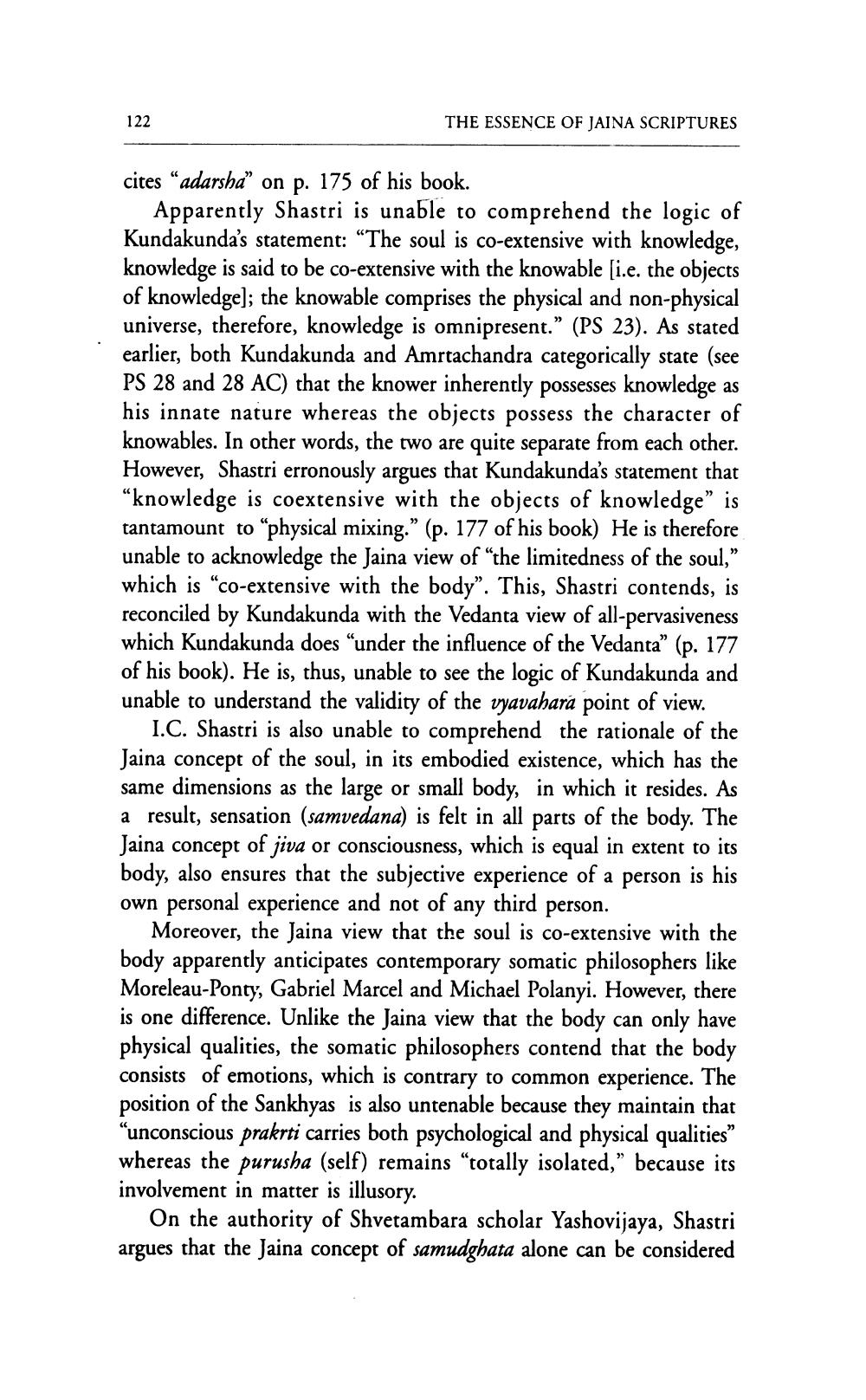________________
122
THE ESSENCE OF JAINA SCRIPTURES
cites “adarsha” on p. 175 of his book.
Apparently Shastri is unable to comprehend the logic of Kundakunda's statement: “The soul is co-extensive with knowledge, knowledge is said to be co-extensive with the knowable [i.e. the objects of knowledge]; the knowable comprises the physical and non-physical universe, therefore, knowledge is omnipresent.” (PS 23). As stated earlier, both Kundakunda and Amrtachandra categorically state (see PS 28 and 28 AC) that the knower inherently possesses knowledge as his innate nature whereas the objects possess the character of knowables. In other words, the two are quite separate from each other. However, Shastri erronously argues that Kundakunda's statement that “knowledge is coextensive with the objects of knowledge” is tantamount to “physical mixing.” (p. 177 of his book) He is therefore unable to acknowledge the Jaina view of “the limitedness of the soul,” which is “co-extensive with the body”. This, Shastri contends, is reconciled by Kundakunda with the Vedanta view of all-pervasiveness which Kundakunda does “under the influence of the Vedanta” (p. 177 of his book). He is, thus, unable to see the logic of Kundakunda and unable to understand the validity of the vyavahara point of view.
I.C. Shastri is also unable to comprehend the rationale of the Jaina concept of the soul, in its embodied existence, which has the same dimensions as the large or small body, in which it resides. As a result, sensation (samvedana) is felt in all parts of the body. The Jaina concept of jiva or consciousness, which is equal in extent to its body, also ensures that the subjective experience of a person is his own personal experience and not of any third person.
Moreover, the Jaina view that the soul is co-extensive with the body apparently anticipates contemporary somatic philosophers like Moreleau-Ponty, Gabriel Marcel and Michael Polanyi. However, there is one difference. Unlike the Jaina view that the body can only have physical qualities, the somatic philosophers contend that the body consists of emotions, which is contrary to common experience. The position of the Sankhyas is also untenable because they maintain that “unconscious prakrti carries both psychological and physical qualities” whereas the purusha (self) remains “totally isolated,” because its involvement in matter is illusory.
On the authority of Shvetambara scholar Yashovijaya, Shastri argues that the Jaina concept of samudghata alone can be considered




